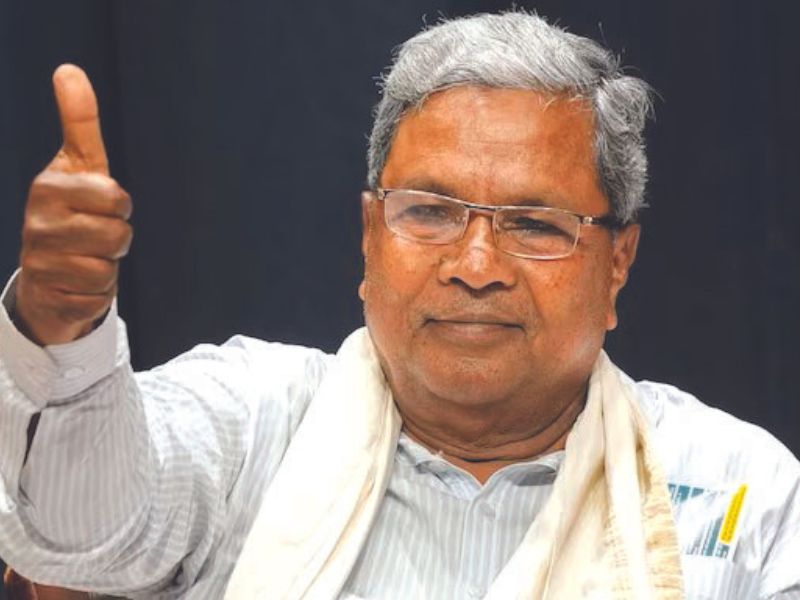Reshma Ravishanker (Bengaluru)

Siddaramaiah: broken inheritance
The newly sworn-in congress government of Karnataka, which won an absolute majority (135 seats in the 224-seat legislative assembly) in a bitterly-fought electoral contest, has inherited a broken, ailing public school system from its predecessor BJP government. A mere nine days after Siddaramaiah (no initials) took oath as the 24th chief minister of Karnataka (pop.64 million) after a four-day long leadership tussle with D.K. Shiva Kumar, sworn-in as deputy chief minister, the Karnataka High Court reprimanded the state government for not providing basic facilities such as drinking water and toilets in public schools. The court cited the Central government’s Unified District Information System for Education (UDISE) data to the effect that of 47,068 government schools statewide, 823 lack drinking water facilities and 464 don’t have toilets.
“Is it not a shame that we are not even giving drinking water to our boys and girls merely because they are studying in government schools at a time when private schools are providing mineral water and have classes with smart boards?” queried the division bench headed by Justice Prasanna B. Varale, while hearing a public interest litigation writ on out-of-school children.
That’s not all. According to UDISE data, Karnataka ranks #2 countrywide for the highest number of single teacher schools. Of the 47,068 government schools, 29 percent i.e, 13,649 are single teacher institutions, second after Jharkhand (30.9 percent). In the neighbouring state of Kerala, a mere 4 percent of government schools have only one teacher.
But while independent agencies such as the high court and UDISE have exposed the pathetic condition of the state’s government schools, the education ministry’s own, internal survey paints a rosy picture. In May, the ministry released results of a survey on its ‘Kalika Chetarike’ supplementary learning programme – introduced in April 2022 to make up for children’s pandemic learning loss. According to the survey, Kalika Chetarike is a big success with 87 percent of government school teachers and 88 percent parents reporting improvement in children’s learning capabilities.
B.S. Rishikesh, head, Hub for Education, Law and Policy, Azim Premji University, says there is an overall sense of satisfaction among teachers and parents about the Kalika Chetarike programme. “The purpose of this programme was to address the issue of foundational learning and numeracy loss during the pandemic induced closure of schools. Children had forgotten what they learnt and couldn’t cope with new lessons. Kalika Chetarike rightly asked school teachers to set aside teaching of the syllabus and focus first on developing children’s conceptual learning and fundamental literacy and numeracy. If not for Kalika Chetarike, children would not be able to recover the pandemic learning loss. In states that have not had a similar programme, the impact on children’s learning levels will be felt after a few years,” says Rishikesh.
However Dr. A.S. Seetharamu, former professor of education, Institute of Social and Economic Change, Bengaluru questions the programme’s ‘success’. “Pre-Covid, the learning levels of children were already low. What the Kalika Chetarike programme has done is merely stem some learning decline. Children’s learning levels have not improved from pre-Covid levels, in fact they have declined as the latest Annual Status of Education Report 2022 reveals. So, how can Kalika Chetarike be a success?” queries Prof. Seetharamu.
According to Seetharamu, the new Congress government should make upgradration of infrastructure and teaching-learning standards in public schools its #1 priority. “Providing infrastructure and basic facilities such as drinking water, toilets, should be the government’s top priority. If children don’t even have access to water and toilets, how can government claim success? Few years ago, I helped EducationWorld prepare a financial calculus advising government how to raise resources to provide every public school with a library, laboratory and lavatories. I advise the new government to study it carefully,” he says. Moreover for several years, subsequent to presentation of the Union Budget, EducationWorld has been presenting a plan for the Central government to raise Rs.7 lakh crore in one year for distribution among states, to no avail.
Unfortunately, the initial statements of education ministers of the new government — centred on rewriting school textbooks to wipe out hindutva bias of the previous BJP government and scrapping implementation of the NEP 2020 — don’t provide much hope of addressing the fundamental problems confronting children from bottom-of-pyramid households who have no option but to attend free-of-charge government schools.